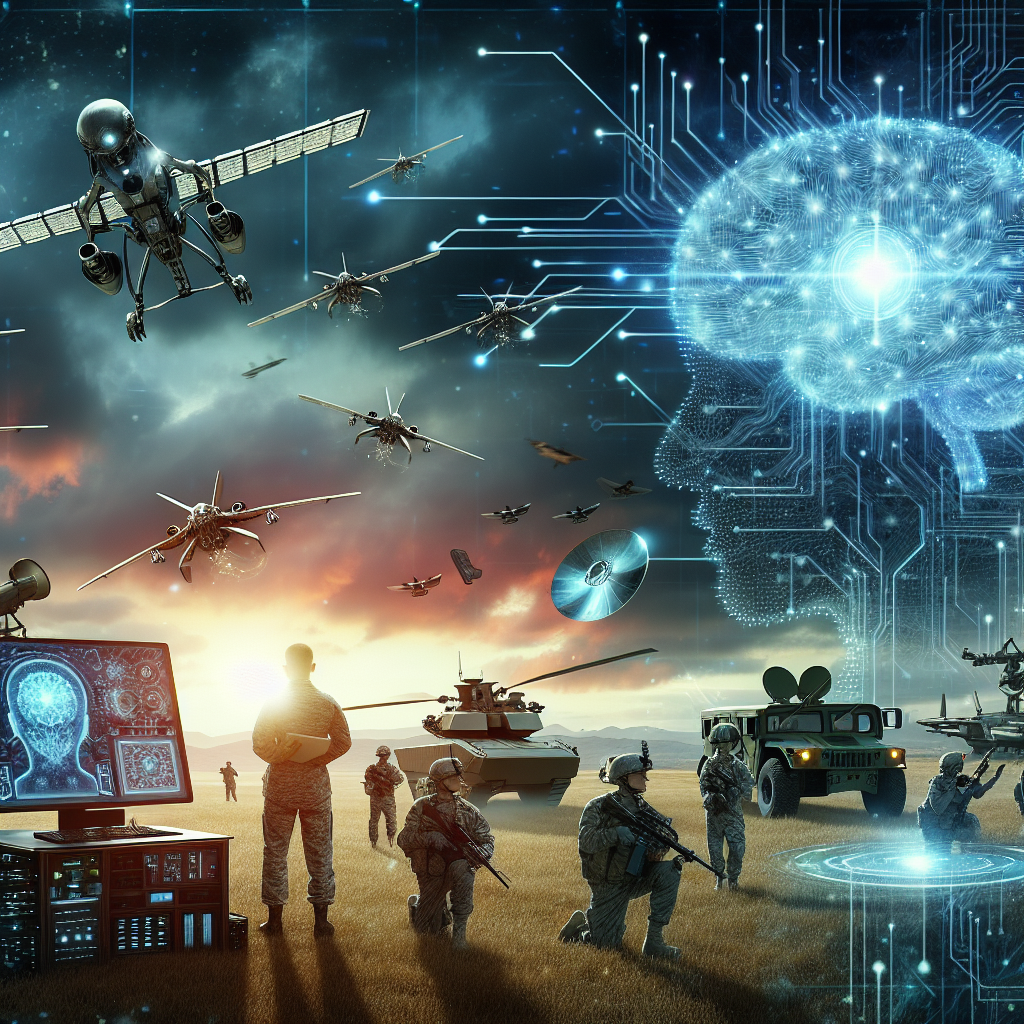Artificial General Intelligence (AGI) is a concept that has long been the subject of speculation and debate within the field of artificial intelligence. AGI refers to a hypothetical form of artificial intelligence that possesses the ability to understand and learn any intellectual task that a human being can. Unlike narrow AI systems, which are designed for specific tasks, AGI has the potential to exhibit human-like cognitive capabilities such as reasoning, problem-solving, and creativity.
The development of AGI has the potential to revolutionize many aspects of society, including the military. The use of AI in warfare is not a new concept, as militaries around the world have been incorporating AI technologies into their operations for several years. However, the emergence of AGI could take military AI to a whole new level, with profound implications for the future of warfare.
The Role of AGI in Military Strategy
AGI has the potential to transform military strategy in a number of ways. One of the key advantages of AGI is its ability to process vast amounts of data and make complex decisions in real-time. This could enable military commanders to gain a more comprehensive understanding of the battlefield and respond more effectively to changing circumstances.
AGI could also be used to enhance autonomous weapons systems, such as drones and unmanned vehicles. These systems could be equipped with AGI capabilities that enable them to operate independently, making split-second decisions based on their analysis of the battlefield. This could reduce the need for human intervention in combat situations, potentially reducing the risk to military personnel.
AGI could also be used to improve military logistics and supply chains. By analyzing data on troop movements, supply routes, and enemy positions, AGI systems could optimize the distribution of resources and ensure that troops are properly equipped and supported in the field.
In addition to these tactical applications, AGI could also have strategic implications for military planning and decision-making. By simulating different scenarios and predicting the outcomes of various courses of action, AGI systems could help military leaders to anticipate and prepare for future conflicts more effectively.
The Future of Warfare with AGI
The emergence of AGI in warfare raises a number of important ethical and strategic questions. One of the key concerns is the potential for AGI to make decisions that have life-and-death consequences without human oversight. This raises the risk of unintended consequences and the possibility of AI systems acting in ways that are not aligned with human values.
Another concern is the potential for AGI to be used in ways that violate international laws and norms. For example, there are fears that AGI-powered weapons systems could be used to carry out targeted assassinations or engage in indiscriminate attacks on civilian populations. This raises important questions about the ethical and legal boundaries of AI in warfare.
There are also concerns about the potential for AGI to be hacked or manipulated by malicious actors. If AGI systems are connected to the internet or other networks, they could be vulnerable to cyberattacks that could compromise their integrity and functionality. This raises the risk of AGI systems being used for malicious purposes or being turned against their creators.
Despite these challenges, there are also potential benefits to be gained from the development of AGI in warfare. By enhancing military capabilities and improving decision-making processes, AGI could help to reduce the human cost of conflict and improve the efficiency and effectiveness of military operations. AGI could also be used to enhance strategic deterrence and reduce the likelihood of conflict by enabling more accurate and reliable predictions of enemy behavior.
FAQs
Q: What are the potential risks of using AGI in warfare?
A: The potential risks of using AGI in warfare include the possibility of unintended consequences, violations of international laws and norms, and the risk of hacking or manipulation by malicious actors.
Q: How could AGI enhance military capabilities?
A: AGI could enhance military capabilities by processing vast amounts of data, making complex decisions in real-time, and improving decision-making processes.
Q: What are the ethical implications of using AGI in warfare?
A: The ethical implications of using AGI in warfare include concerns about the potential for AI systems to make life-and-death decisions without human oversight, and the risk of AI systems acting in ways that are not aligned with human values.
Q: How could AGI improve military logistics and supply chains?
A: AGI could improve military logistics and supply chains by analyzing data on troop movements, supply routes, and enemy positions, and optimizing the distribution of resources.
In conclusion, the development of AGI has the potential to revolutionize the future of warfare by enhancing military capabilities, improving decision-making processes, and transforming military strategy. However, the use of AGI in warfare raises a number of important ethical and strategic questions that must be carefully considered and addressed. By exploring the potential benefits and risks of AGI in warfare, military leaders can make informed decisions about how to leverage this powerful technology in ways that promote peace and security.

